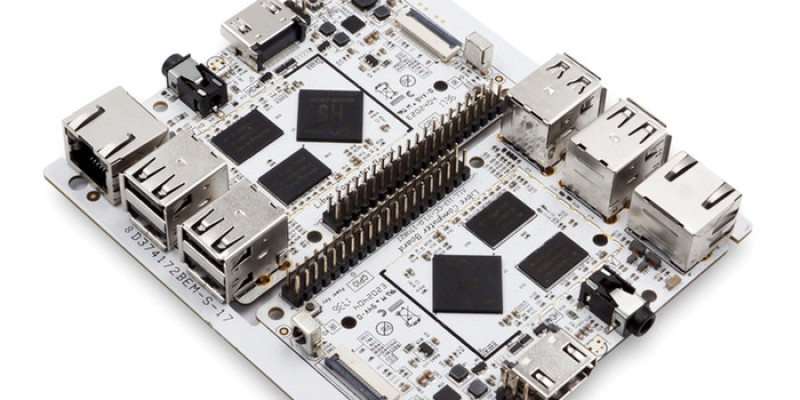When the Raspberry Pi was first released it sent shockwaves across the world. A fully-blown Linux computer on a board the area of a credit card, and the latest version of the Pi clocks a fair bit of kit in a cheap package. There's only 1 real downside of the Pi compared to other hardware boards such as the Arduino - it's not a completely open platform. The Broadcom SoC that powers the Pi is proprietary.
The Libre Computer Project aims to change that with their recently designed Tritium. The Tritium is billed as a single board computer that shares the same form factor as the Raspberry Pi 3 Model B. This should mean you will be able to drop the Tritium into any previous Raspberry Pi project, albeit with a different Linux kernel.
The Tritium does appear to share more than just a resemblance to the Pi; the I/O ports, power and header pins look to be an exact replica. This should make it possible to drop previous Pi shields and cases on the Tritium.The main CPU is based around the Allwinner H2+, H3 and H5 boards, which are GPL compatible (debatable) open SoC boards, and an ARM Mali-400 for the GPU (which is not open). It also features more memory, storage and GPU capabilities, meaning faster all round performance, and up to 4K30 video.
To compare like-for-like, the top tier Tritium board is about the same price as a Pi 3, at $35. To stay competitive, some tradeoffs have had to be made alongside to improvements. The Tritium offers a slower clock speed of 1GHz compared to the Pi's 1.2GHz, but uses faster DDR3 1333 RAM, doubling the capacity to 2GB. Both boards feature 100Mb internet and 4x USB 2 ports, however, the Tritium ditches Wi-Fi and Bluetooth in favour of an IR receiver and eMMC memory - something they say helps ship faster due to certifications needed for distribution.
The Tritium looks to be a good alternative to the Pi if you want slightly better video playback at the expense of connectivity and CPU speed. It would probably be more suited as a media player than the Pi, as it can achieve higher FPS and resolution.
You can pledge now on their Kickstarter to get your own, with the cheapest board starting at a very respectable $9.
